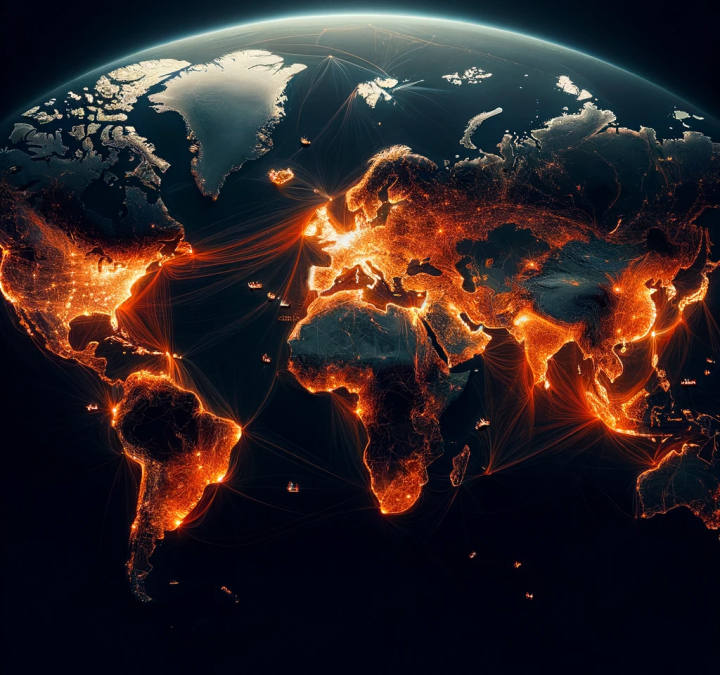
by Nicholas Mitsakos | Book Chapter, China, Economy, Globalization, irrationality, Public Policy, Taiwan, Trade, uncertainty, Writing and Podcasts
A turbulent geopolitical and economic environment is here to stay. Allocating capital in today’s economic and geopolitical landscape requires a sharp focus on macro trends, a disciplined approach to risk, and an ability to anticipate shifts in policy and global power dynamics. The investment landscape has never been more complex, with heightened tensions between the U.S. and China, uncertainty surrounding Taiwan, and Europe’s economic fragility. The new reality is that trade realignments, subsidized industrial policies, and emerging trading blocs characterized by protectionism and localization are rising. Now What?Geopolitical risk is no longer an afterthought. The US-China rivalry, Taiwan’s strategic importance, Europe’s economic fragility, and shifting trade policies will shape the next decade of global markets. Savvy investors will anticipate these changes and allocate capital to industries and regions positioned for sustained growth. The key to success is flexibility, resilience, and the ability to recognize macro trends before they materialize fully. The future is uncertain but full of opportunities.
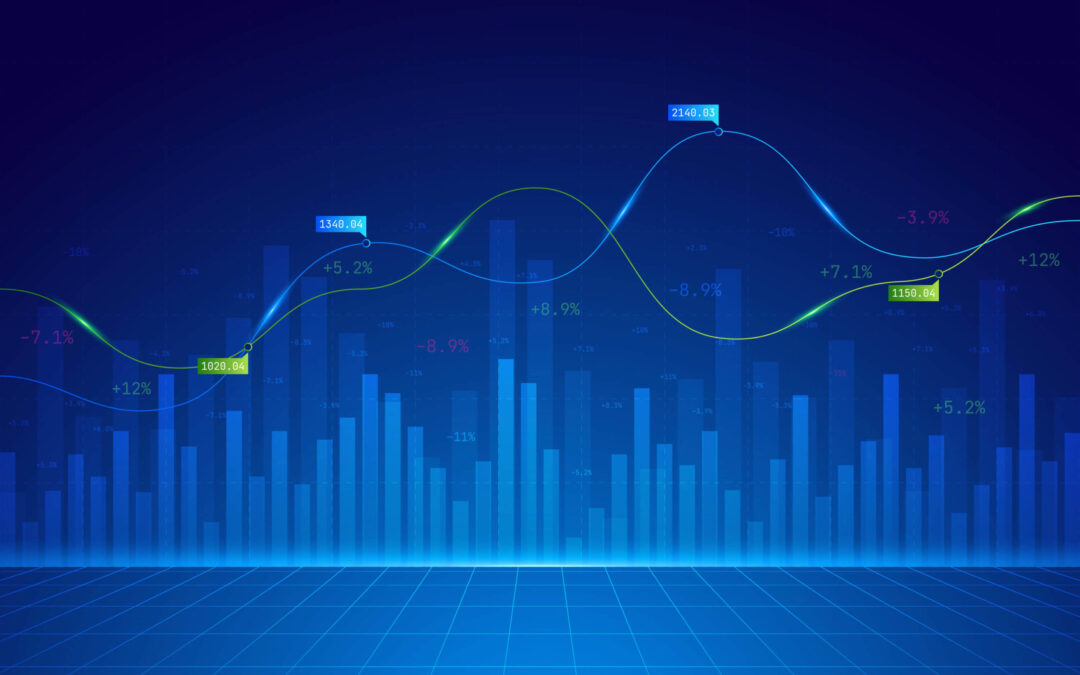
by Nicholas Mitsakos | Innovation, Investment Principles, Investments, irrationality, The Market, Transformative businesses, uncertainty, Writing and Podcasts
Predicting what’s next has been a fool’s game, and it continues to be. The S&P 500 was up 26% in 2023 and 25% in 2024, for the best two-year stretch since 1997-98. That brings us to 2025. What lies ahead? Rationality, Optimism, exuberance, disappointment, correction, and more frequent and intense volatility—with uncertainty about the timing, extent, and outcome. Is enthusiasm for new technology creating a bubble, and will the bubble burst? Optimism has prevailed in the markets since late 2022, generating above-average valuations and astonishing returns for some (primarily AI-related) equities. Stocks in most industrial groups sell at high multiples, but enthusiasm for artificial intelligence and the persistence of the Magnificent 7 drive most market expectations. There is the implicit presumption that the top seven companies will continue to be successful and that the “new thing” (artificial intelligence) will drive valuations even higher. However, stocks may sit still for the next 10 years as earnings rise and multiples return to earth. Another possibility is that the multiple correction is compressed into a year or two, implying a significant decline in stock prices. Be aware of Mr. Market’s irrational behavior. It’s not going to be a smooth pathway forward; there will be great investment opportunities, as there are in any market, but overall, it’s a high starting point. It’s time to be neutral.

by Nicholas Mitsakos | Innovation, irrationality, Science, Transformative businesses, Writing and Podcasts
The future does not need us, and apparently, we don’t need it either. The future isn’t what it used to be. Humankind evolved to have a long-term view, either from religious teachings, the seasons, empires, and epoques, beyond the temporal spaces of our lifetimes. We went from living in an extended present to thinking about a long-term future. Our horizons have gotten much shorter. When I wrote my latest book, “The Ten Year Horizon,” ten years seemed a sufficient and faraway temporal space to discuss a long arc of basic scientific research and discovery that could address our most urgent problems. However, it’s most appropriate to think a century ahead to understand the future we want. It’s not just for us, it’s for generations to come. Collectively, mankind has never had so many ways to destroy itself through self-made dangers including nuclear weapons, bioterrorism, climate change, antibiotic resistance, and many other self-manufactured threats. It is time for temporal maturity and ignore the tumultuous waves striking the boat today and keep our eye on the long-term horizon. Short-term thinking has brought the potential for a catastrophic crisis even closer. Perhaps now it is time to grow up and think about the future. What do we want to be – because whatever that may be, we are certainly not working towards it now.

by Nicholas Mitsakos | Book Chapter, Digital Assets, Investments, irrationality, Transformative businesses, Writing and Podcasts
It has taken over 30 years for the overnight sensation of the Metaverse, but now hype, money, and large technology companies are charging in. Most obvious and conspicuous is Facebook’s maneuver to change its name to Meta Platforms and commit $10 billion. Microsoft is making a $70 billion acquisition of Activision to mostly focus on Metaverse platform development. Following on top of these two elephants is tens of billions of dollars of venture capital. The opportunity is considered comparable to the original iPhone. None of the iPhone’s component services – mobile phone, computer, camera, and operating system, were new or distinct. The iPhone revolution is the convergence into a single device (or platform) and, most importantly, the entrepreneurial spark that lit millions of application developers to create value from the iPhone platform.
The Metaverse can best be thought of as the intersection of technologies and users. It combines virtual and augmented worlds, virtual assets, digital assets, and gaming into a single platform. However, there doesn’t seem to be anything too disruptive about the Metaverse or Web 3.0. It’s reasonable to be skeptical, and while there is an economic opportunity within the specific creation of Metaverse assets, the real opportunity remains with the infrastructure, intermediaries, picks, shovels, and “the arms dealers” of global digital war.
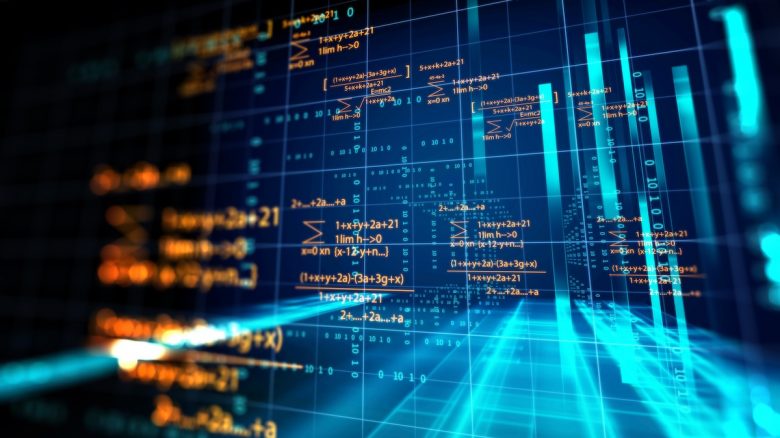
by Nicholas Mitsakos | Algorithmic Trading, Artificial Intelligence, Financial Technology, Investment Principles, Investments, irrationality, The Market, Writing and Podcasts
Let the data tell the story. Remove human bias. Intuitive investment ideas may seem compelling, but more often, these ideas are time-consuming, inefficient, and inferior. Data and verification are more effective, and this approach has generated more successful investment strategies. Diverse thinking, diverse data, innovative approaches, and a willingness to be wrong and start over typically bring superior results. Trust the model. Data, discipline, and rigor win more often.

by Nicholas Mitsakos | Economy, Finance, Investment Principles, irrationality, Public Policy, uncertainty, Writing and Podcasts
Risk is higher. Markets are more unpredictable, and valuations more volatile. So, when anyone says “this time it’s different” it usually makes good sense to stop listening. However, these days the markets have given us more frequent and intense volatility. The NASDAQ is down almost 30% so far this year, and shocks from the pandemic, the Ukrainian war, massive central bank interest-rate maneuvers, and China’s zero-covid policy, are all ongoing inputs for turmoil that will continue for some time. Persistent uncertainty creates higher costs of capital and less affordability, weakening business investment, slowing GDP growth, and reducing investment returns. Hyperbolic “this time it’s different” statements are turning out to be true. This time days look darker, uncertainty greater, economic growth lower, vulnerability to additional shocks higher, and investors fear many more dark days to come. More frequent and intense volatility will not be calmed anytime soon. It really may be different this time.

by Nicholas Mitsakos | Algorithmic Trading, Investment Principles, Investments, irrationality, Writing and Podcasts
The illusion that one can either predict or get ahead of cycles, or predict when they will end is why most investors underperform the market. Markets are driven by human emotion, and it is human emotion combined with the supply and demand dynamic that determines price. Therefore, pricing is independent of anyone’s perspective about “intrinsic value.” Markets are based on price, price is based on supply and demand, and that dynamic is subject to abrupt changes based on the whims of small numbers, and sometimes exceptionally large numbers, of investors. Human behavior controls the markets. Optimism, pessimism, psychology, fear, conviction, and resignation all play a role in adding to volatility and uncertainty. Frequent and intense volatility is here to stay. Market movements really can’t be predicted unless they are at extremes when prices are at absurd highs or lows. But, picking the high or the low is a fool’s errand. Understanding and profiting from volatility, managing risk, and believing in a sustainable investment model is still the best strategy.
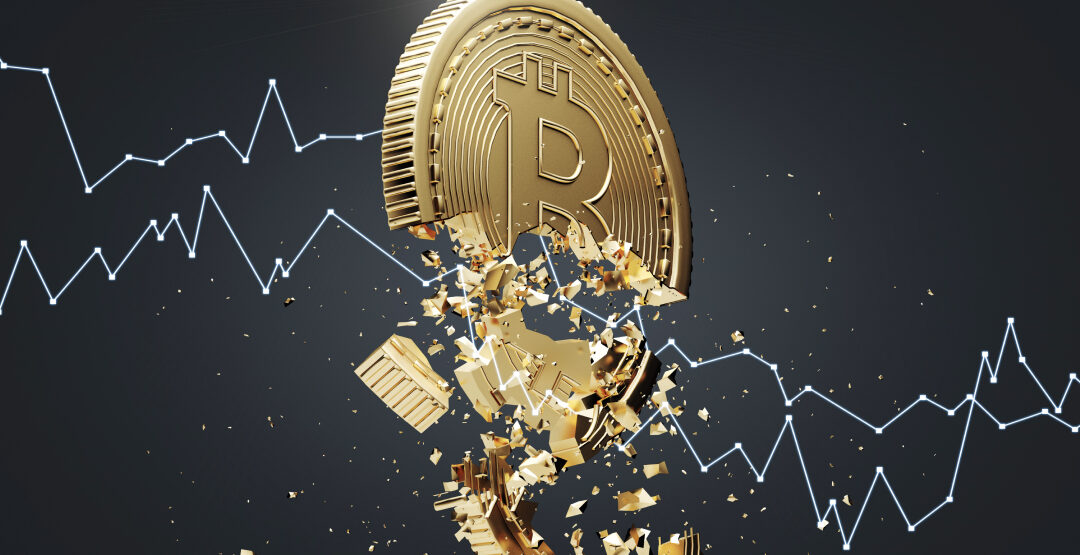
by Nicholas Mitsakos | Currency, Digital Assets, Financial Technology, Investments, irrationality, Transformative businesses, Writing and Podcasts
Cryptocurrency staying power has certainly been challenged these last few weeks. There is been a general market drop (even correction), but crypto has been collapsing in value and, to many, is in a death spiral. Of course, reality is more nuanced, and with more detailed analysis, a broad brush hardly seems appropriate. Certainly, the weakest and, honestly, craziest portions of the crypto world have been exposed to be nothing more than silliness. But some components remain resilient. The market is quite effective at sorting the specifics of an otherwise overgeneralized sector. There is no such thing as “crypto.” There are stable and valuable digital assets, globally exchangeable and disruptive. Others have nothing but fluff. Of course, government should insist on more reliable information, and institutions should guard more effectively against fraud. But, there is wheat among the chaff, and it continues to have the potential to be disruptive, create substantial value, and enhance global prosperity.
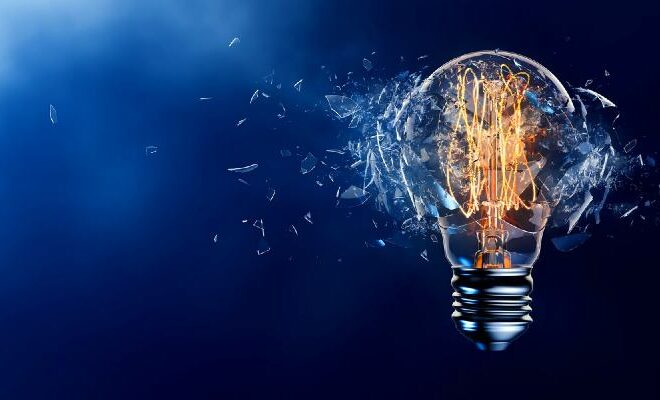
by Nicholas Mitsakos | Artificial Intelligence, Biotechnology, Book Chapter, Digital Assets, irrationality, Transformative businesses, Writing and Podcasts
Transformation, or euphemistically, “disruption,” creates great opportunities to capture newly created wealth. But, as industries are transforming and strategic disruption is occurring, quite a lot of absurdity and certainly enough terror are associated with some of these extraordinary opportunities to require much greater analysis and understanding.
There are extraordinary risks associated with anything disruptive and transformational. The first disruptor isn’t always the one who creates the most value or is even a sustainable competitive entity.
Innovation does not mean competitive sustainability. Digital platforms, ranging from the internet to digital assets and cryptocurrency are transforming industries globally. But, along with that comes a lot of hyperbole and typically that is followed by very little substance. Great companies use technological disruption, innovation, and transformation to establish themselves and thrive. But they rarely last. Every company, even the most valuable companies such as Apple, Apple, Amazon, Facebook, Netflix, etc. must dynamically transform to stay competitive and valuable.
Transformations are certain. New entities will become very valuable, legacy companies will diminish, and a handful will transform and thrive.
Transformation and sustainability create and capture great wealth, but are far more challenging to identify, and even more challenging to sustain.
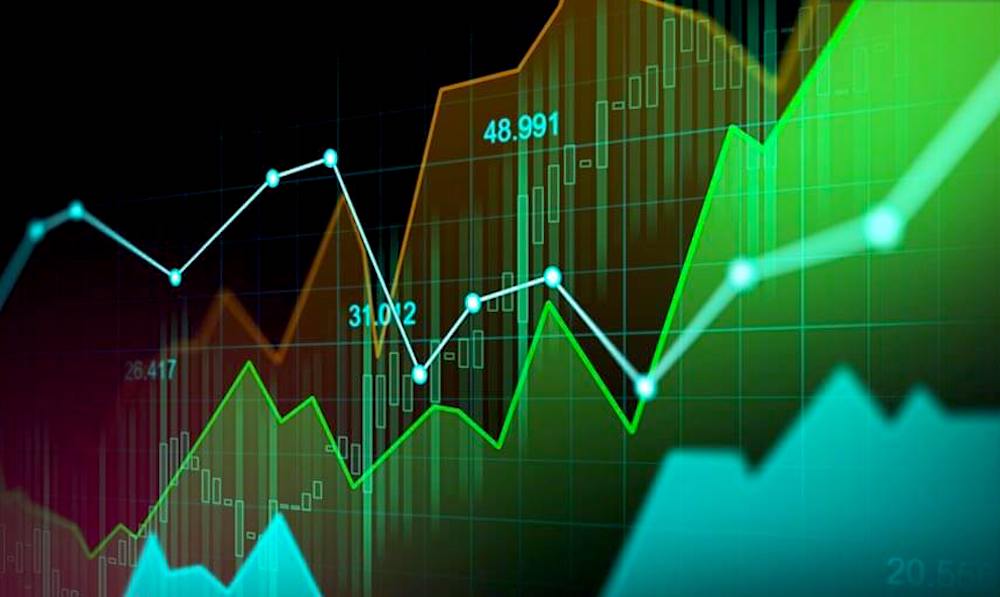
by Nicholas Mitsakos | Book Chapter, Investment Principles, Investments, irrationality, The Market, Writing and Podcasts
The world may appear to be a rational, deductive place if you are a scientist. But not if you are an investor attempting to understand how markets work. Financial markets are human creations, and humans are irrational. Economics, a truly dismal social science, is an attempt to look backward and create explanatory algorithms about what happened and why. They may have some success with this. But as predictive models, they are mostly useless. More often, they destroy value versus conveying any understanding about economic and business functions, and therefore, give not only useless but awful and typically value-destroying predictions. Participating in the markets requires a broader, more methodical and disciplined approach. Since irrationality pervades most activity, markets move dramatically with uncertainty, and investors react with dramatic moves based on even more uncertainty and lack a reasonable level of understanding and longer-term perspective about what is going on. The world now is more dynamic, volatile, uncertain, and unpredictable. Irrationality drives most market decisions and rising above the noise to be more thoughtful, think deeply and slowly to understand what’s going on, and identify the handful of factors (typically very few) that make all the difference to investment success is the true challenge we face today. That challenge takes work and thoughtful strategies in our irrational world. That world will remain fundamentally irrational from now on, and thoughtful strategies are the only way to succeed in this irrational environment.










